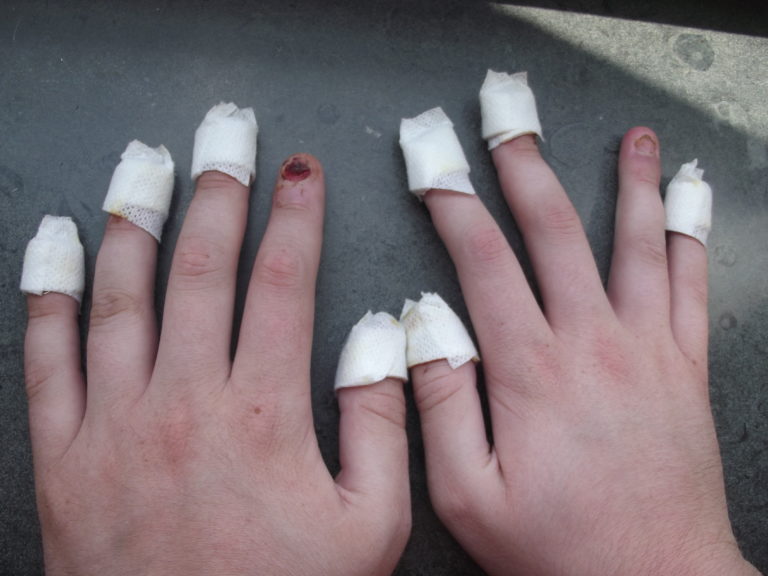A portrait series on the victims and those who have died in German psychiatric hospitals has only recently been published. One of the victim’s stories told is the story of Michael Perez. A young man with brown eyes and a friendly smile, Michael Perez has been committed to a forensic psychiatric hospital for years after punching someone and being judged to be of unsound mind. Ernest’s story is also told. In one photograph, Ernest looks into the camera, obviously marked by the attack from a nurse, a black eye “decorating” the face of the autistic boy who is currently being held in the forensic unit in Ueckermünde.
Both Michael’s sister, Bianka Perez, and Ernest’s mother are trying desperately to fight for both a humane and curative treatment for their family members. But they feel helpless in the face of the absolute power of the administration, as they experience it. Wracked by grief, Ernest’s mother recently contacted me personally to ask if I could report an incident that occurred at the forensic hospital in Stralsund in 2013. When housed there, Ernest injured his scrotum by using a sliver of plastic; by “almost completely removing the skin of his penis”, he sought to end his life. An operation at the ICU was carried out the very same day. However, his mother told me this was not young Ernest’s last attempt at suicide. They continually dismiss the suicidal tendencies of her son as one of the symptoms of his condition, which his mother vehemently denies. But her words are not taken seriously; in the past she has even been prohibited from speaking to her son in Russian, her native language, which she considers a particularly serious infringement of their privacy. In tears, she told me of her son’s fate and how he has been completely damaged and destroyed by the “treatment” he has experienced so far.
Bianka Perez also drew attention with her stories of how her brother has been restrained in the forensic hospital. After an incident in which he displayed aggression in the institution, Michael Perez was beaten by police with a baton and sprayed with pepper spray. When is enough enough? As shown in the photograph, must those sentenced to German hospital order treatment rip out their toe nails, beat their heads and fists against objects in the institutions, cut off their penis or smear the wall with feces in order to make their suffering clearly visible? These days, along with the “normal” psychiatric facilities, forensic psychiatric hospitals are often getting negative press and coverage by the media. According to Blick aktuell, the clinic Nette-Gut for Forensic Psychiatry—where Michael Perez is currently being held—recorded several suicides within a 16-month period in 2010. Unfortunately, not much has been reported about the individual fates of those who committed suicide during that time. Nevertheless, six years after these terrible events took place, the clinic won the Bundespflegepreis der Fachvereinigung Leitender Krankenpflegepersonen der Psychiatrie (BFLK), an award given by the federal government for a psychiatric institution that has demonstrated excellence in care. Suicide prevention is named as the top priority. However, Michael Perez and Ernest serve as examples of individuals committed to such institutions who have not been helped or properly cared for. According to the stories told by the families of Ernest and Michael, all of which can be confirmed, these young men suffered traumatic experiences in the hands of forensic psychiatric institutions, experiences that appear to have made them unfit for life. Thus, society should more intensely question and examine how people sentenced to hospital order treatment are treated as well as raise awareness for the possibility of error and misjudgment made by individuals working in these facilities. Only in this way can we investigate the human rights violations and abuses which occur.
Dr. Christian Discher

